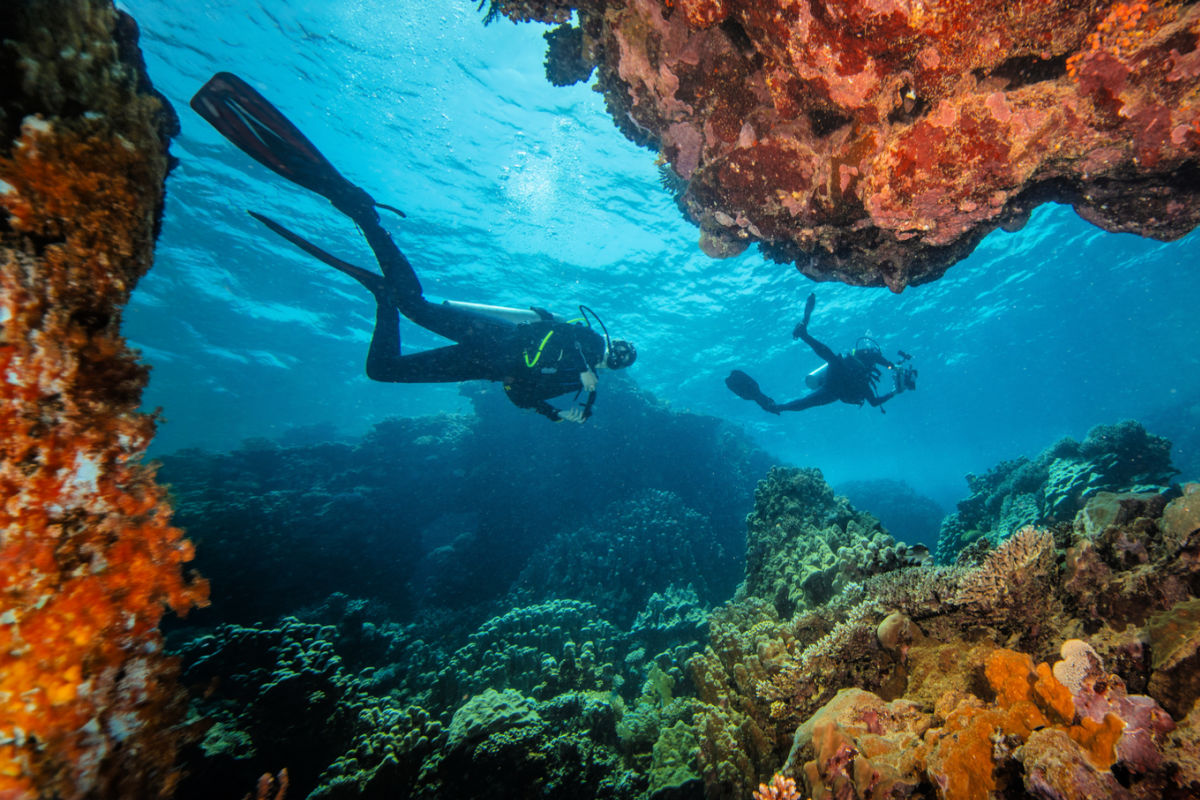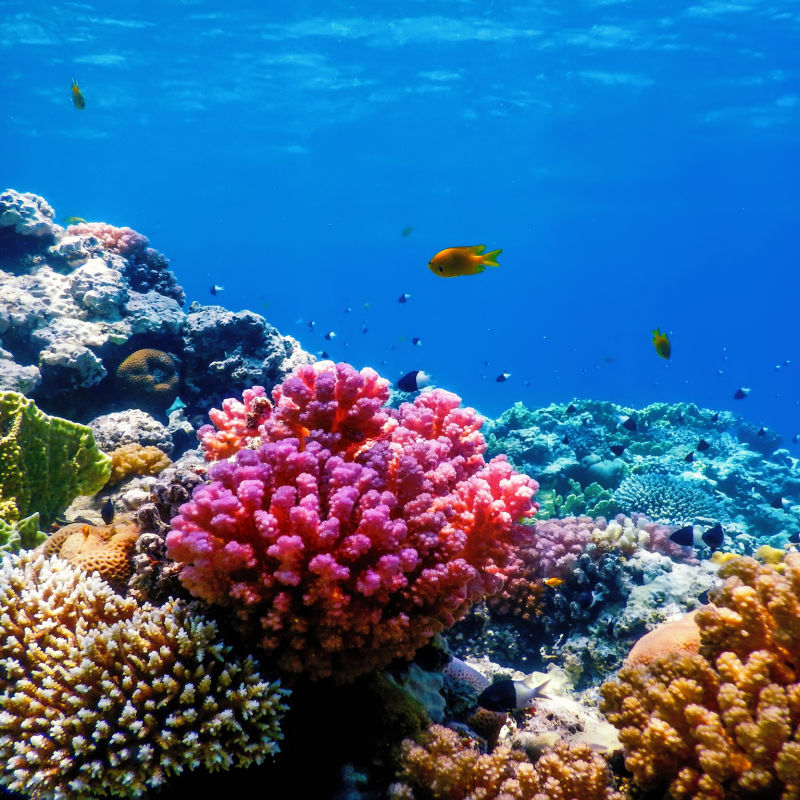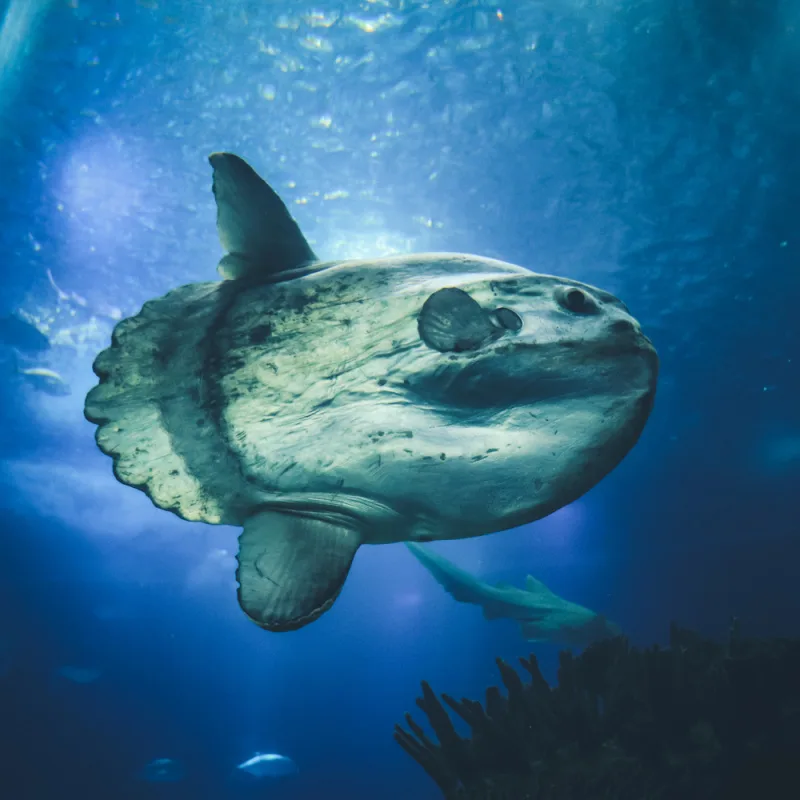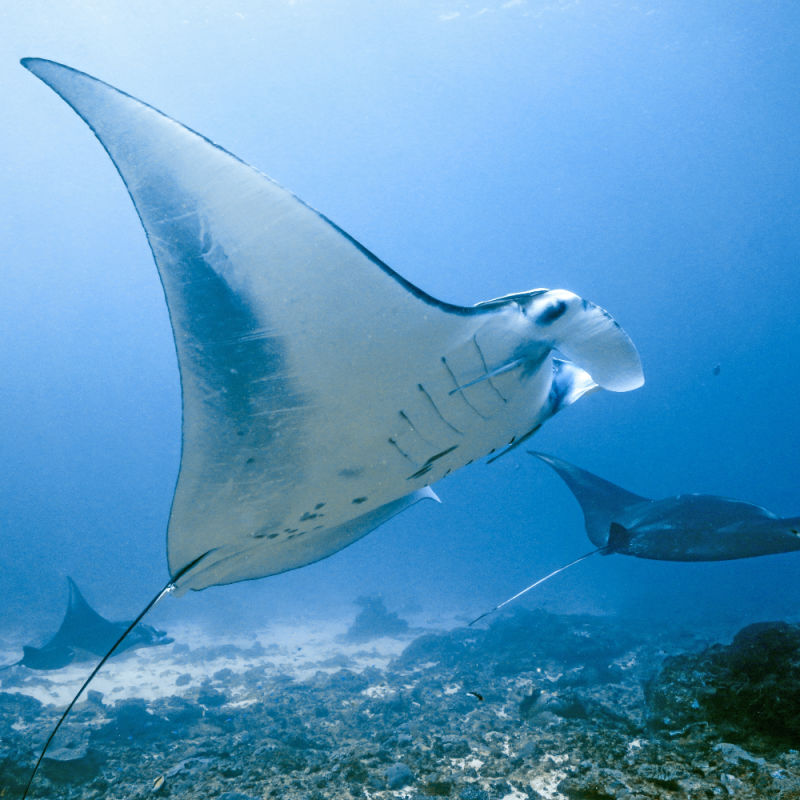Bali’s bucket list activities are extensive, from visiting temples to island hopping to attending a water blessing ceremony to taking a surf lesson. There are so many activities to add to the itinerary.
One of the island’s most popular activities and day trips is snorkeling and diving. Home to a resident population of manta rays and a migrating population of sunfish, not to mention incredible coral reefs, Bali’s underwater realms are as exciting as those on land.

Things have just become more exciting as researchers have just discovered a whole new coral reef off the coast of Bali’s Nusa Penida.
The outlying islands of Bali Province, Nusa Penida, Nusa Lembongan, and Nusa Ceningan are not only utterly breathtaking but also home to some of the rarest coral reef ecosystems on earth.
This new discovery makes the prospect of a diving or snorkeling trip even more exciting, and as new policies have just been introduced to further protect these waters, tourists can expect big things.
A group of young Indonesian marine biologists who work with the NGO Ocean Gardener have found an expansive coral colony off the coast of Nusa Penida.
Though the colony was only discovered in early December and further study is required, initial findings are confident that this could be the biggest coral colony in the world! The coral colony has been named Galatea Astreata.
Speaking to reporters, Ocean Gardener Research and Science Coordinator Manikmayang explained, “This discovery has the potential to set a new world record. However, further testing is needed to confirm its status among the world’s giant coral colonies. The Galaxea colony was measured at 58 m wide, 71 m long, 10 m high, covering an area of over 4000 m2.”
At present the largest recorded coral colony is the Solomon Island Pavona colony which is recorded as 34m wide, 32m long, and 5.5m high. Located in the Lombok Strait, the Nusa Penida Marine Protected Area covers 20,057 hectares of waters surrounding the Nusa Islands, and is home to manta rays, sun fish and endangered turtles.
In November 2024 the waters surrounding Nusa Penida were given another layer of envrionemtal protection from the International Maritime Organisation, which is part of the United Nations. The area is now listed and protected as Particularly Sensitive Sea Area (PSSA), the same protection afforded to the Great Barrier Reef.
Nusa Penida-based NGO, the Coral Triangle Center, confirmed the new designation and shared “a monumental achievement after years of dedicated conservation work within the Nusa Penida Marine Protected Area (MPA) – made possible with the unwavering support of CTC and passionate environmental advocates.”

With all these new discoveries and new layers of environmental protection, what does this mean for tourists visiting Nusa Penida, Nusa Lembongan, and Nusa Ceningan, and what does it mean for diving and snorkeling in these areas?
For now, nothing immediately changes; these protections and the new discovery of Galatea strata will have more of an impact on the fishing industry in the short term, but over the next year or so, new policies may be introduced that limit or change the way in which tour operators navigated these parts of the ocean.

Tourists are already expected to honor the guidelines and best practices when diving or snorkeling with manta rays in Nusa Penida. These majestic creatures are highly sensitive, and tourists are implored to respect the fact that they are visiting the habitat of another species.
Guidelines include not touching the animals, not feeding the animals, not stepping on or touching coral, not disturbing sediment, and not littering. When in the water, divers and snorkelers should remain at least 3m away from manta rays and 5m away from sunfish, never swimming beneath the animals and never interfering with their path of travel.

Tourists are encouraged to book tours and diving day trips with reputable providers who are strongly committed to honoring the environment and those who live in it. The Green Fin certification scheme is a good badge to look for when booking tours, as it shows a company’s commitment to ethical practices within its business.
Remove All Ads & Unlock All Articles… Sign up for The Bali Sun Premium

Plan Your Bali Holiday:
Book The Best English Speaking Drivers For Airport Transfers & Tours
Choose From Thousands of Bali Hotels, Resorts, and Hostels with Free Cancellation On Most Properties
Book Cheap Flights To Bali
Don’t Forget Travel Insurance That Covers Medical Expenses In Bali
For the latest Bali News & Debate Join our Facebook Community
SUBSCRIBE TO NEW POSTS
Enter your email address to subscribe to The Bali Sun’s latest breaking news, straight to your inbox.

Exp
Saturday 14th of December 2024
High risk that living corals will be removed and traded.
High risk that area will be monopolized and tours sold off at high cost.
Ofri
Friday 13th of December 2024
Galaxea astreata, wrong name
Wim
Friday 13th of December 2024
@wp Streng verboden gebied van maken ,en geen concessies doen aan geld beluste personen zoals touroperators en ambtenaren.
Soeharto
Thursday 12th of December 2024
Will be destroyed in 1 year now that they now about it
Michael Harrington
Thursday 12th of December 2024
Looking forward getting back to my home in Bali missed it so much the food n Culture my family n friends insyhalah end of Februari